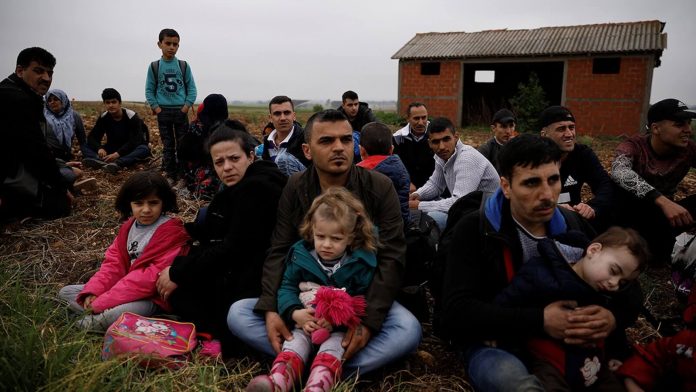This article is written by Ruchi Dhawan Sharma pursuing Diploma in Labour, Employment and Industrial Laws (including POSH) for HR Managers from LawSikho.
Table of Contents
Who is a refugee?
When an individual is forced to leave his/ her country due to harassment, violence, or war. Such individuals are called refugees. The reason is fear of harassment based on race, ethnicity, religion, political opinion, or being a member of a particular group. They are so afraid that they are not willing to go back home, compelling them to flee their own country. People from Syria, Sudan, Myanmar, Afghanistan, and Venezuela constitute 68% of refugees. Such refugees when sent to another country seek protection and apply for asylum. Seeking asylum is the right to be recognized as a refugee, get assistance legal as well as material. A refugee has to establish the fear of persecution in their respective countries to qualify to seek asylum.
As a fundamental human right, every human being should have access to safe and lawful employment. Employment empowers a human to meet the survival needs for self and family. They also contribute to the community and country at large. This also ensures that a human feels useful and productive. Besides a means to survive, the freedom to work is also important for dignity, self-esteem, and self-worth.
Laws related to refugees right to work
-
Universal Declaration of Human Rights- 1948
According to Article 1 human beings are born free. They have an equal right to live life with dignity. They should act with each other in the spirit of brotherhood. Articles 2,3 two says all have the right to freedom without discrimination and the right to security. According to Article 14, everyone has the right to seek asylum from persecution (which should have not arrived due to non-political crime)
-
European Convention on Human Rights- 1949
According to Article 1, it is obligatory to respect all human rights
-
UN Refugee Convention 1951 and Protocol of 1967
The main international tool for refugee law known as the 1951 Geneva Convention gives direction on who qualifies for being a refugee. The legal protection that a refugee should get, their social rights, and other assistance that they should receive from the country that has signed and agreed to this. The Convention also explains the obligation that refuge has towards the host country and government. It also provides guidelines for another category of people that do not qualify as refugees; like war criminals.
It was initially limited to European refugees only post-second world war, a document/ protocol was released in 1967 which expanded the scope to the whole world.
Rights given to refugees in the 1951 convention and the 1967 protocol together is called the 1951 Refugee Convention 2. This was endorsed by 147 countries in the world. These 147 have the obligation to allow job opportunity/self-employment to asylum seekers and refugees. The freedom to work is considered to be the most important of all as with this other rights have little significance.
In spite of this, job opportunities and self-employment is denied to refugees, and this estimate that around 16 million refugees will be in exile for 20 years. Humanitarian aid is helping to provide physical security to refugees however that alone is not sufficient. The support needs to be comprehensive which does not only profile short-term relief but also enables them to be self-sufficient.
Right to work under refugee law and international human rights
A refugee is recognized as an autonomous person who is entitled to dignity and rights under exile as per The 1951 Refugee Convention and its 1967 Protocol.
Chapter III of the Convention says that the work right of refugees includes the right to participate in wage-earning employment and self-employment. The host country has an obligation to provide the same without reservation. This was agreed upon by 85% of the member countries.
This is applicable to;
- All refugees are either recognized by UNHCR or by state. Recognized as a refugee under refugee status determinations (RSD),
- An asylum seeker who have got it for a fixed period,
- All Asylum seekers who failed to be determined as refugees, or the interim time in which the same is under process. Situations where resettlement of refugee is awaited,
- The terms and rights of self-employment should not be less favorable than that is provided to the aliens (Article 8),
- In case the receiving county has a law stating restrictions on the employment of foreign nationals to protect own labour market, does not apply to refugee,
- All the refugees who are residing in that country for 3 years or more or their family member (spouse or child),
All refugees should be exempted from requirements to obtain work permits or permission to start a new business provided the reason for not being able to provide the same is due to privation that has resulted because of forced displacement. (Article 1 and Article 18)
The work rights given to refugees as per the 1951 Refugee Convention are supported by other international and regional human rights treaties. ICESCR (The International Covenant of Economic, Social, and Cultural Rights). It recognized that every individual has a right to earn his livelihood.
-
Convention Governing the Specific Aspects of Refugee Problems in Africa 1974
Article 1 defines refugees in similar lines as of the UN 1951 convention. Article 2 speaks about Asylum that the Member States of the OAU shall do best in line with legislation to receive refugees. They will also ensure the settlement of those refugees who, for genuine reasons, are inept or reluctant to return to their own country of origin or nationality.
Non-refoulement
Prevention of the involuntary return of a refugee is called non-refoulement. This is a fundamental principle in international refugee law.
This is explained in Article 33 of the Convention Relating to the Status of Refugees. It states that no state will expel or return a refugee for any reason to the borders of regions where his/her life is threatened, his/ her freedom is encroached on account of race, religion, nationality, membership of a particular social group, or political opinion.
Countries do detain asylum seekers on arrival. They are detained during the asylum process or while they are waiting for their return. Refugee/asylum seekers had already suffered detention and Pain in their respective county from where they had come. Therefore, detention may have a serious impact and will cause emotional stress and psychological stress.
As per Article 31 of the Refugee Convention refugees should not be reprimanded if he/she has entered the country illegally.
As per Refugee Convention Articles 12 – 30 defines the rights which individuals are eligible to if he/she is recognized as a refugee:
- Travel documents and identity papers must be arranged and that they should be allowed to travel out of the country
- On the following aspects, Refugees must be given the same treatment as the citizens are;
- Religion and religious education,
- Access to the legal system and provide legal assistance,
- Elementary education,
- Intellectual-property – trade names / inventions,
- Literary, scientific work, and artistic work to be protected,
- Tax rules,
- Join any trade union trade unions,
- Join non-political nonprofit organizations,
- To join employment, self-employment.
Following regional instrument recognizes the refugee’s right to work as mentioned in human rights and international 1951 convention;
- European Social Charter,
- Charter of Fundamental Rights of the European Union (Article 15),
- The African Charter on Human and Peoples’ Rights (Article 15),
- Charter of the Organization of American States (Article 45),
- The American Declaration on the Rights and Duties of man (Article XIV),
- The Additional Protocol to the American Convention on Human Rights in the Area of Economic, Social and Cultural Rights (Article 6),
- Arab Charter on Human Rights (Article 34).
The relationship between the right to work and anti-discrimination treaties
The right to work is also protected under several important specialist human rights and anti-discrimination treaties, which may be applicable to international law arguments.
- The International Convention on the Elimination of All Forms of Racial Discrimination (Article 5(e)(i));
- The Convention to Eliminate All Forms of Racial Discrimination Against Women (Article 11(1)(a));
- The Convention of the Rights of Persons with Disabilities (Article 27); and
- The International Convention on the Protection of the Rights of All Migrant Workers and Members of Their Families (Articles 52 and 55).
Internally displaced persons
Like refugees there is another set of people who had to leave their homes for similar reasons like a refugee, the only difference is they do not leave their own country and cross an international border. Such people are called Internally displaced persons
Conclusion
A durable solution for the predicament is awaited by most of the refugees in the world. Although many get temporary asylum in neighboring countries, their status is mostly not regularized. Even if they get access to education and recreational opportunities, these are highly restricted. Many times the refugees are attacked by local people or security personnel.
As per an estimate, there are 20-25 million internally displaced people and around 11.5 million refugees. In the event of multiple disputes with ethnic groups in different countries, an unstable political system would further increase these numbers. It is imperative that those countries who have agreed and signed the 1951 UN convention support refugees in letter and spirit. Irrespective of which part of the world we come from, all human beings have the basic right to live respectfully and earn a livelihood.
Students of Lawsikho courses regularly produce writing assignments and work on practical exercises as a part of their coursework and develop themselves in real-life practical skills.
LawSikho has created a telegram group for exchanging legal knowledge, referrals, and various opportunities. You can click on this link and join:
 Serato DJ Crack 2025Serato DJ PRO Crack
Serato DJ Crack 2025Serato DJ PRO Crack











 Allow notifications
Allow notifications


